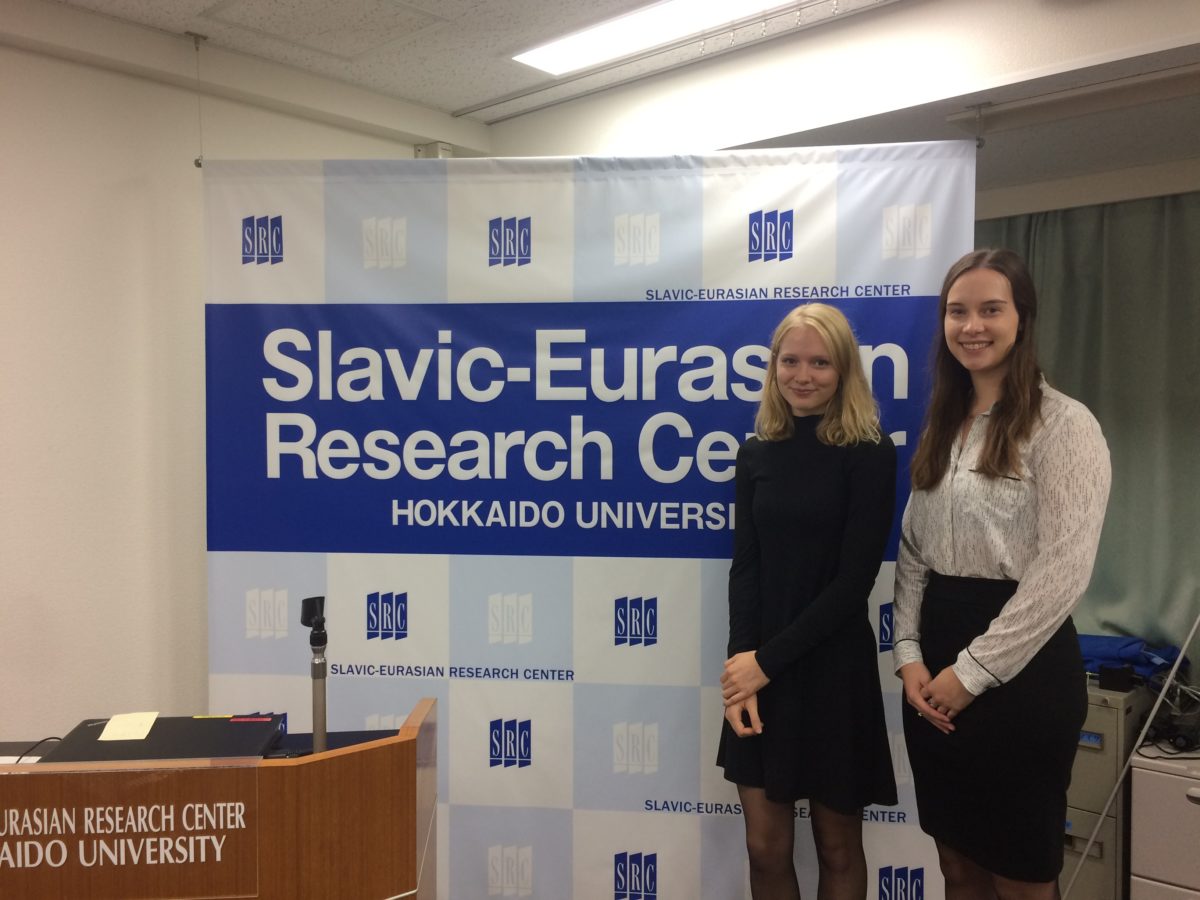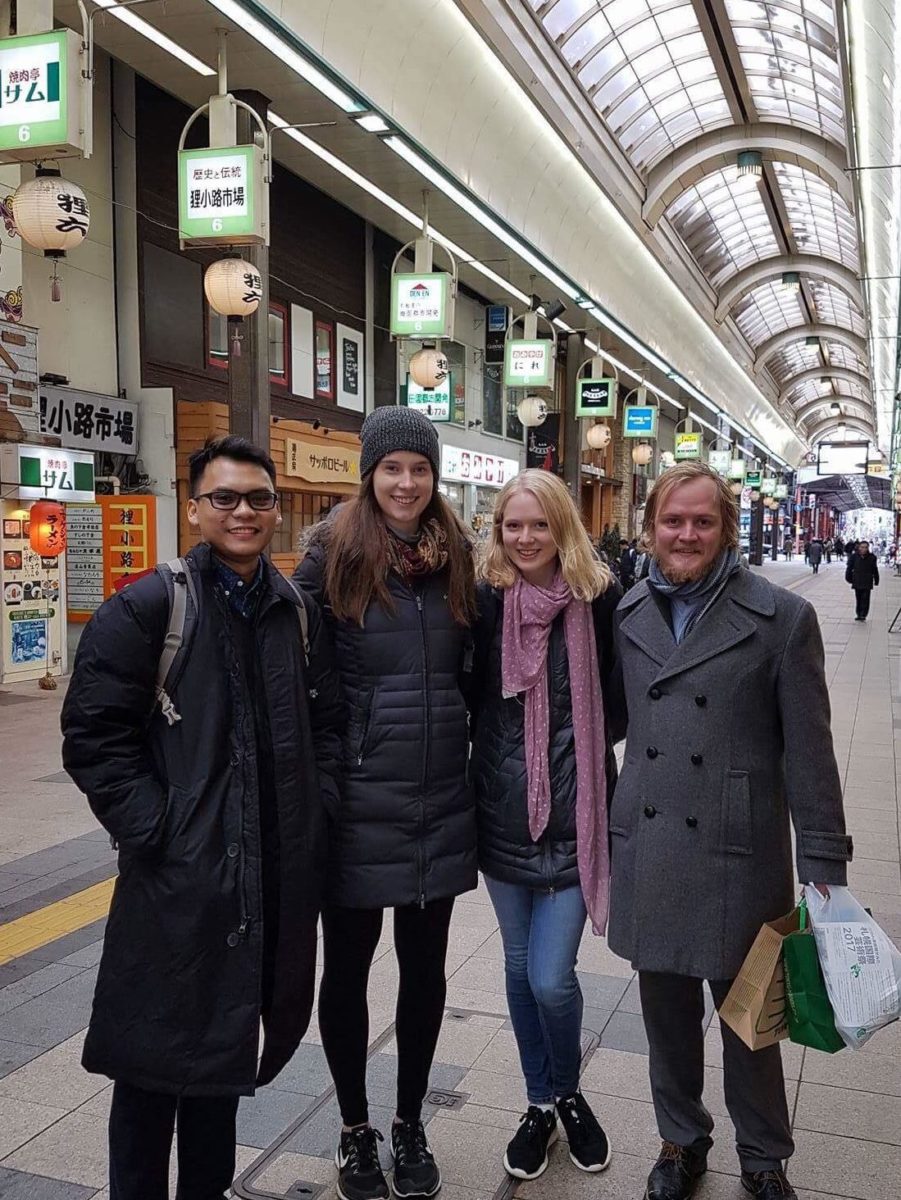After graduating from St. Thomas University in 2017, Charlotte Schwarz and Kathleen Rankin never expected to be asked to present papers at an academic conference in Japan.
But in August, Shaun Narine, a political science professor at St. Thomas, encouraged the pair to write papers as a part of a research project, “The Arctic in Asia, Asia in the Arctic.” They would later present to a group of professors and students at the University of Hokkaido in Japan.
They knew an opportunity to present their work in an academic setting in another country was something they couldn’t pass up.

“I’d never been to a conference before and I’d never been to Japan so both of those things made it seem like a really good experience, and it wasn’t an opportunity I was expecting to get,” said Schwarz, who returned to STU in September to complete an honours degree in political science and Great Books.
The pair began writing separate papers in September, both focusing on the Arctic, which they completed two weeks before travelling to Japan.
Schwarz and Rankin took the trip in late November, presenting their papers to PhD and masters students alongside their professors.
“It was nerve-wracking at the beginning because we were the only undergraduate students [presenting], but nobody knew that,” Schwarz said.

“It was interesting to see what students with masters and PhDs [presented] when we haven’t done that yet.”
Schwarz presented her paper, “Canada’s Arctic Policy and its Relations with Russia: Must ideology be set aside for the sake of cooperation?” which focused on Canada’s Arctic policy under former Prime Minister Stephen Harper and the country’s relationship with Russia. It also explained the increasing environmental effects on the Arctic.
“What was the most shocking [about my research] was that [Canada and Russia] are so concerned over sovereignty and not so much about the environment. They are fighting over oil while the whole thing is melting,” Schwarz said.
The topic interested both students, but it was the opportunity to gain experience that really convinced Schwarz and Rankin to attend the conference.
“I wanted to go for public speaking experience and I thought it was a really great opportunity to have something like this on my resume, since I am an undergraduate student,” Rankin said. She also returned to STU in September to complete an honours degree in international relations.
Rankins’ paper, “Resolutions through Research: Negotiating Canadian-Danish Sovereignty Claims to the North” focused on the fight for sovereignty of Hans Island between Canada and Denmark. The island is rich in natural resources.

While presenting her paper at the conference, Rankin said she gained confidence in her public speaking abilities and her knowledge of the subject.
Her favourite portion of her presentation was the question period.
“You can talk all day about what you know, but for people to question you, it really feels good to express your knowledge [confidently],” she said.
“And it really feels good to tell people about something you know because half of the people didn’t have a clue what I was talking about, but they were interested.”
That feeling of accomplishment and opportunity is why Rankin encourages students to make connections during their first few years. Without the relationships she made at STU, she said, she wouldn’t have had the same opportunities.
“[Students should] make connections with their professors. Don’t be afraid to connect with academics who share the same interests as you,” she said.
“The stronger a relationship you have with your professors, the more likely it is that opportunities will arise for you.”

